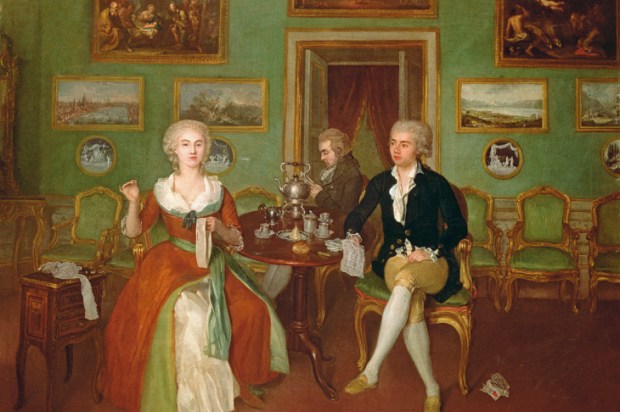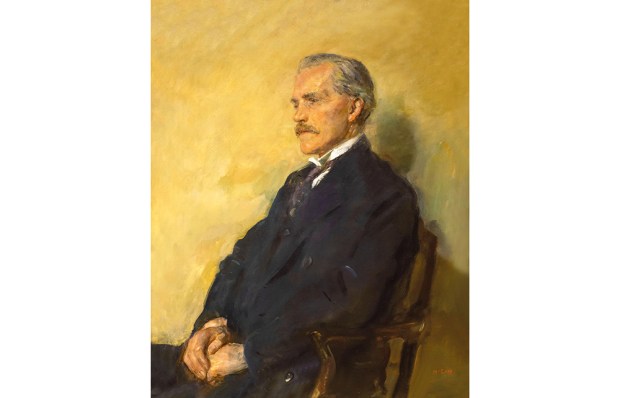I am not sure if it’s properly understood quite what a crisis the short story is now in. Superficial signs of success and publicity — such as Alice Munro winning the Nobel, or the establishment of another well-funded prize — are widely mistaken for a resurgence. But what has disappeared — and disappeared quite recently — is the wide spread of journals willing to pay for a single story.
That is what sustained the genre in its glory days. Edwardian magazines such as the Strand happily paid their star writers the equivalent (or even more) of a doctor’s annual income for a single story. There were dozens of such publications between 1890 and the outbreak of the first world war. The result was a golden age of the story, as writers saw that it was worth their while to dedicate a significant part of their practice to the short form.
As recently as the 1980s there were still a good number of journals in this country regularly publishing short fiction and developing individual talent. That now seems to have disappeared. The BBC pays approximately £50 for a single short story, which is hardly worth anyone’s time. Newspapers will occasionally publish one, but not in a way that could develop any burgeoning talent. Instead, there are prizes, some of them well-funded; but they are obviously too random from a writer’s point of view. I have often wondered, attending one of those grisly awards evenings, whether Conan Doyle would have been happy to put on a dinner jacket and sit with a smile on his face waiting to hear whether he was going to be lucky enough to be paid at all for writing a short story. He might even have found the idea humiliating. With the funds one Sunday newspaper makes available for its annual short-story prize, it could afford to pay handsomely every week for a short story.
Instead writers in this country are reduced to giving away their short fiction for nothing, or to collecting it from time to time and persuading their publisher to bring out a volume for minuscule advances. It is scandalous that short-story writers of the talent of Helen Simpson, Jackie Kay, Gerard Woodward, Ali Smith, Shena Mackay and A.L. Kennedy have never established a firm relationship with a journal which, like the Strand with Conan Doyle, would regularly publish their stories. But there are no such magazines in this country.
The situation is somewhat better in America. Two of the best British short-story writers of recent years, Tessa Hadley and Zadie Smith, have developed through the consistent interest and support of the New Yorker. There is a wider range of journals over there, some of which even pay properly. Here, meanwhile, we are reduced to listening to representatives of the press wondering why American short-story writers are so much better than British ones, before handing over a cheque to the lucky winner of that year’s competition. It is really no good.
Edith Pearlman is an American short story writer whose reputation is growing in this country, and whose virtues are comparable to the great Alice Munro’s. She has been tempted by the range of human possibilities in a run of stories (there is no social panorama in 19th-century Russian fiction like the panorama in Chekhov’s collected stories). Though, in the manner of Cheever’s stories, a sort of unity is attempted by a single setting (a suburb of Boston called Godolphin), in reality the aim is human variety, and also variety of means of storytelling.
Don’t be put off by the atrocious whimsy of Pearlman’s titles (‘Fishwater’, ‘Tenderfoot’): she is somewhat tougher than they suggest. Some of the stories here are restricted vignettes, glimpses of lives as if seen sharply through the window of a moving vehicle. Others pass over years, in the Munro manner. The consequences of an adolescent game rigged by a mother become apparent in adult lives. There is an interesting touch of magic, when a volunteer in a homeless shelter turns out to possess powers of witchcraft, driving the madness of two regular patrons into some gerbils, which promptly drown themselves.
Pearlman favours coincidence of a somewhat corny type: people turn up just on cue to bring the story to an interesting conclusion. There is talk of the effect of religion on people’s lives, and, in a sequence circling round an antiques shop, a discussion of the almost mystical investment of the human spirit in precious, unique or merely peculiar objects. The antiques shop provides a gift of an opportunity to wonder about the lives of the people whose possessions have been left there, and Pearlman takes it up with stories about unsaleable objects that are mysteriously (and disappointingly) snapped up, or the transformation of a legacy into jewels, and back into necessary expenditure.
These are often handsome stories, well-furnished and engaging. The best are those in which a trivial occurrence is followed scrupulously to light up the corners of unusual lives: a schoolteacher receives a bogus invitation to speak at a British university; the invitation leads to nothing, but the little splash of excitement shows us his life, and in particular his three peculiar, brilliant children. The story ends like a ramshackle vehicle grinding into a ditch. Two fat girls are treated to a cruise by a benefactor; they tactfully choose the low season, and proceed to stuff themselves with the terrible food. The story really is about the invisible deaf mutes who make their beds and clean their bathrooms, whom only an unfortunate fit of diarrhoea will make visible.
Pearlman’s temptation, however, is to widen her social panorama, and I think it’s often a mistake when she goes beyond the world of well-meaning, comfortably-off suburban Americans living in the 21st century. In a previous volume, she disastrously attempted an American working in London during the Blitz, with no grasp of period or place whatever (at one point, her early 1940s heroine sent out to a London newsstand for a copy of the New York Times).
Here, when she goes beyond her comfortable places, the human qualities tend to be subsumed in generic, sometimes even national or racial types. A French-woman, ‘despite 25 years in Massachusetts… retained a French accent and French syntax, not to mention French chic and French beauty’. Two African women, victims of genital mutilation — their specific origins do not trouble us — speak in Wise Woman of the Hills fictional dialect: ‘The tortoise knows how to embrace its mate…Wisdom does not live in only one home… She agrees to come, and tell.’ Interestingly, both African women and French émigrée use the same fictional-foreigner question tag — ‘We take the subway from here, yes?’ (African) and ‘You are discussing some stranger’s case history, yes?’ (French) — suggesting that the world is all a bit generic beyond Boston’s city limits.
Occasionally, too, the emotional analysis goes awry. Would a podiatrist really be so relaxed about treating the voyeur from across the street whom she knows has taken sexual pleasure in watching her and her customers? In one story, a small girl runs in panic from a dog, and then is caught up by her father. ‘I had run because I wanted to be caught… by the country doctor who had fathered me.’ But that makes no sense: a girl could act fearful in order to be saved, but actually to be frightened of a dog is not to anticipate a secure rescue. Here, the short story’s tendency to epiphany has turned into an imitation of emotional acuteness.
Pearlman is a good short-story writer, who in this volume produces half a dozen admirable examples; her career hasn’t, I believe, been supported by the New Yorker, but she has found many other US journals in which to develop her writing. Mixed in quality, her work ought nevertheless to be kept in mind by the interested reader.
There is just room to recommend 365: Stories, an innovative volume by the excellent British writer James Robertson (Penguin, £12.99, pp. 416, ISBN 9780241146866, Spectator Bookshop, £10.99). His previous collection, Republics of the Mind, is one of the best of recent years. For this one, he spent a year writing a short story every day, each exactly 365 words long, and another year putting them on his publisher’s website before bringing the collection out as a volume. They are curious investigations, and you can feel Robertson working his way into the form, exploring what a short short story can actually do, ranging through parables, realist vignettes, essay-like statements and paranoid fantasies — Kafka is a presence here.
The British short story has always been more experimental and playful than its American counterpart, and here we see the response of an inspired and inventive writer to a difficult situation. But I would be much happier about recommending this book if I felt that Robertson had found a way to make the short story pay – or that there was any reason to expect another volume from the same hand.
Got something to add? Join the discussion and comment below.
Get 10 issues for just $10
Subscribe to The Spectator Australia today for the next 10 magazine issues, plus full online access, for just $10.
Available from the Spectator Bookshop, £13.99 Tel: 08430 600033
You might disagree with half of it, but you’ll enjoy reading all of it. Try your first month for free, then just $2 a week for the remainder of your first year.














Comments
Don't miss out
Join the conversation with other Spectator Australia readers. Subscribe to leave a comment.
SUBSCRIBEAlready a subscriber? Log in